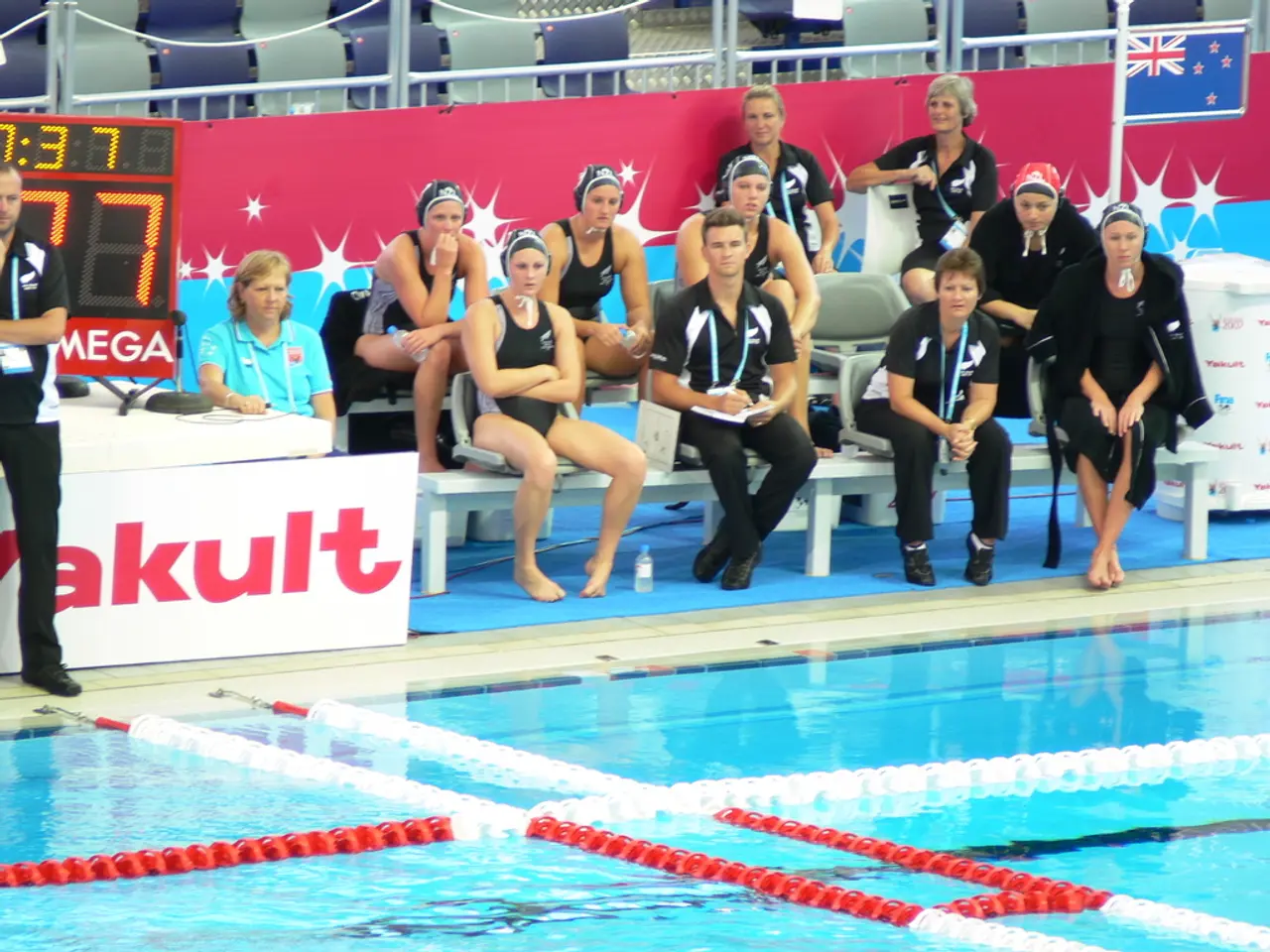German leadership mobilized in refugee relief efforts, spearheaded by Widmann-Mauz
In the wake of the devastating fire at the Moria refugee camp on Lesbos, Germany's Federal Integration Minister, Annette Widmann-Mauz (CDU), has called for a European solution to the ongoing refugee crisis on the Greek island. Widmann-Mauz emphasized the need for swift help, particularly for families with children, as the situation for refugees has become unbearable.
The minister's call comes as Germany considers taking in an additional 1,500 refugees from the burned-down Moria camp. However, details on how this European solution would be implemented have yet to be provided. Widmann-Mauz has stressed the importance of sharing the responsibility for refugees among European countries and ensuring that all EU states are held accountable in this solution.
Germany's current role in helping refugees on Lesbos is primarily focused on asylum processing and secondary reception within Europe. The shift from humanitarian aid to stricter border control and containment on the island has limited Germany's direct involvement. Lesbos, once a symbol of compassion during the 2015 refugee crisis, now operates under tightened EU border policies with Greece restricting aid access and relocating migrants to remote camps.
Thousands of asylum seekers have reapplied for asylum in Germany this year, showing Germany's ongoing involvement but with a focus on redistribution rather than direct aid on Lesbos itself. The Greek government and EU policies have adopted a tougher stance on migrants, with new laws potentially criminalizing those who remain illegally after denied asylum and stricter limitations on benefits for asylum seekers.
The European Union has increasingly supported Greece's border enforcement measures, signaling a broader European pivot from open humanitarian reception to containment and control. The longstanding challenge of a unified EU-wide refugee distribution system persists without full consensus or implementation.
Widmann-Mauz's call for a European solution comes as the number of refugees from the Moria camp exceeds 12,000. The minister's emphasis on the need for a swift response and the importance of providing help to families with children highlights the urgency of the situation. The timeline for Germany's potential intake of additional refugees has not been specified.
In conclusion, the fire at the Moria refugee camp has exacerbated an already catastrophic situation for refugees on Lesbos. Germany, through its Federal Integration Minister, has called for a European solution that prioritizes the needs of families with children and ensures a fair distribution of responsibility among EU states. The ongoing evolution of the refugee crisis and the EU's response will continue to be a significant focus for policymakers and humanitarian organizations alike.
[1] EU reinforces border controls on Greek islands amid refugee crisis [2] Greece adopts tougher stance on migrants arriving by sea [3] New laws could criminalize migrants who remain in Greece after denied asylum [4] Thousands of asylum seekers reapply for asylum in Germany after being granted refugee status in Greece
- The ongoing refugee crisis on Lesbos, as exemplified by the fire at the Moria camp, has sparked a call from Germany's Federal Integration Minister for policy-and-legislation that emphasizes the necessity of a European solution, aimed at providing swift help to families with children and ensuring a fair distribution of responsibility among EU states, as other European countries may be involved in this endeavor.
- As the general-news regarding the situation on Lesbos evolves, it is evident that the European Union has increasingly focused on border controls, with Greece adopting tougher stances on migrants and potentially criminalizing those who remain after denied asylum, while the discussion of a unified EU-wide refugee distribution system continues.






